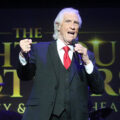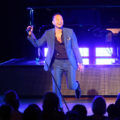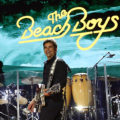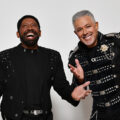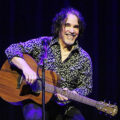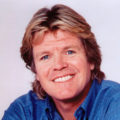Bill Medley and The Righteous Brothers bringing back that “Lovin’ Feelin’” for the Genesee
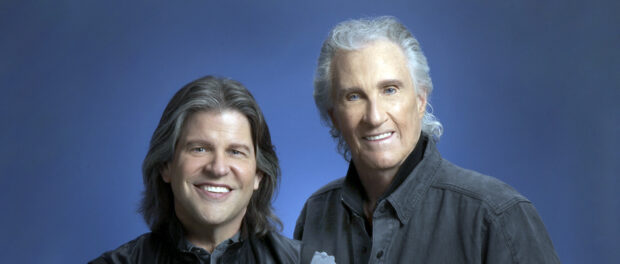 Photos provided by The Righteous Brothers
Photos provided by The Righteous Brothers
Blue-eyed soul pioneers The Righteous Brothers redirected the course of the 1960s and onward with a string of now iconic ballads, including “Unchained Melody,” “You’ve Lost That Lovin’ Feelin’” and “(You’re My) Soul And Inspiration.”
As the decades progressed, Bill Medley and the late Bobby Hatfield were further immortalized in mega movies such as “Top Gun” and “Ghost,” while the former is of course no stranger to the silver screen alongside Jennifer Warnes for the equally enduring “Dirty Dancing” delight “(I’ve Had) The Time Of My Life.”
With his eyes set on the Genesee Theatre come Thursday, October 5, Medley connected with Chicago Concert Reviews to recall opening for The Beatles and The Rolling Stones, working with super producer turned convicted murderer Phil Spector, the shocking loss of his longtime musical partner, rebooting the band with Bucky Heard and a theory on why The Righteous Brothers thus far lasted this long.
What can the Genesee Theatre expect?
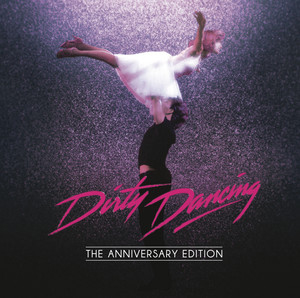 Bill Medley: Well, we know why the audience is there. They’re there to hear all these songs that touched them when they were younger, so we do all the hits. We have a lot of fun doing ‘em. A little humor’s going on, but when we do the songs, we do them very serious. My daughter sings with me on the song I did for “Dirty Dancing,” “(I’ve Had) The Time Of My Life,” so mainly, it’s the hits and just a lot of fun. The one thing I love to hear after the show is people say, “Boy, we didn’t expect to see all that!” So it’s pretty cool, and my partner Bucky Heard is just an incredible singer, and really knocks it out of the park.
Bill Medley: Well, we know why the audience is there. They’re there to hear all these songs that touched them when they were younger, so we do all the hits. We have a lot of fun doing ‘em. A little humor’s going on, but when we do the songs, we do them very serious. My daughter sings with me on the song I did for “Dirty Dancing,” “(I’ve Had) The Time Of My Life,” so mainly, it’s the hits and just a lot of fun. The one thing I love to hear after the show is people say, “Boy, we didn’t expect to see all that!” So it’s pretty cool, and my partner Bucky Heard is just an incredible singer, and really knocks it out of the park.
How have audiences been receiving the latest line-up of The Righteous Brothers?
Medley: To my surprise, remarkably wonderful. They’ve accepted Bucky and they show up at the concerts. I’m pleasantly surprised that those songs meant so much to so many people that it’s kind of kept us alive all these years.
Do you have recollections of any previous shows around Chicago?
Medley: I think we were doing “Shindig!,” at the time a big TV show, and it might have even been before “You’ve Lost That Lovin’ Feelin’.” We had this job in Chicago, and we were just getting ready to go on, and I had ripped my pants (laughs) from the back right when they were saying, “And now, ladies and gentlemen, it’s The Righteous Brothers!” So I did the whole show with my ripped pants and Bobby Hatfield, who was a real comedian, made me turn around to show the audience how I ripped my pants (laughs). That’s one of my recollections, but we’ve always loved Chicago and loved the audiences there. I just love the city a lot.
In the early days, how did it go opening for The Beatles and The Rolling Stones?
Medley: It was very interesting. We opened up for The Beatles first and we did about three weeks or a month tour with them in America and it was great. It was unusual, only because we realized later we had a front row seat to history! But boy, it was our first experience of seeing kids just going crazy and I think it surprised The Beatles a little bit too. I think they were surprised that little girls weren’t really interested in the songs. They were more interested in the guys. They would scream and cry all the way through the song, which didn’t make ‘em mad, but it kind of disappointed them a little bit that they wouldn’t just listen to the music. But it was great.
Opening for The Rolling Stones, they hadn’t quite made it yet and it was a Southern California tour where Bobby and I were pretty big, so we were almost bigger than The Rolling Stones, but it was a great tour. It was a lot of fun. They were really great guys and our music kind of matched with their music a little better than with The Beatles, but both of those tours were wonderful and we’re very thankful that we did ‘em.
Around then you got connected with Phil Spector. What was it like working with him?
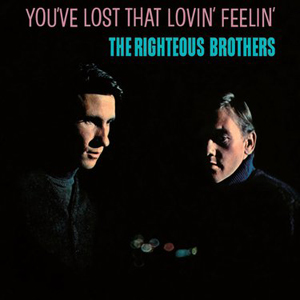 Medley: Well, you know everybody expects a horror story (laughs) when I talk about Phil, but Phil was great with us. He was wonderful, and thank God he had called Barry Mann and Cynthia Weil to write a song for us. They wrote “You’ve Lost That Lovin’ Feelin’,” which kind of surprised us cause we were up there singing nothing but kind of rhythm and blues up until then. But Phil was great and I certainly learned a lot cause I produced a lot of The Righteous Brothers’ records and almost all of the albums. Even when we were with Phil, Phil asked me to produce the albums, so I learned a great deal from him. He was brilliant.
Medley: Well, you know everybody expects a horror story (laughs) when I talk about Phil, but Phil was great with us. He was wonderful, and thank God he had called Barry Mann and Cynthia Weil to write a song for us. They wrote “You’ve Lost That Lovin’ Feelin’,” which kind of surprised us cause we were up there singing nothing but kind of rhythm and blues up until then. But Phil was great and I certainly learned a lot cause I produced a lot of The Righteous Brothers’ records and almost all of the albums. Even when we were with Phil, Phil asked me to produce the albums, so I learned a great deal from him. He was brilliant.
The Righteous Brothers are often considered blue-eyed soul pioneers. How does that description sit with you?
Medley: We loved being called “the blue-eyed soul brothers” because a Black disc jockey, I think in Philadelphia, [called us that]. They couldn’t play our records before “Lovin’ Feelin’” because were were white and it was a Black station, and the white stations wouldn’t play us cause they thought we were Black. So the disc jockey would always say, “And now here’s ‘You’ve Lost That Lovin’ Feelin’’ by my blue-eyed soul brothers The Righteous Brothers.” Really, what he was telling his audience was that we were white, because in the old days, a Black guy would refer to a white guy as a “blue-eyed,” so being called “the blue-eyed soul brothers” was quite a compliment and then it kind of caught on somehow, some way.
“You’ve Lost That Lovin’ Feelin’ is the most played song of the entire 20th century on American radio. What do you feel made it such an enduring recording?
Medley: The only thing I can think about is that I think about the kids back then, 16, 17, 13, 14, girls, that it probably was the first, like, really dramatic love song about losing a love for these kids. It was a big, powerful ballad and I think a lot of the white kids really didn’t understand they could feel that way. You know, hurt is hurt and pain is pain. Even if you don’t relate it to a romance, we’ve all been hurt one way or another in our life, losing your parents or grandma and grandpa, so “You’ve Lost That Lovin’ Feelin’,” I think, just emotionally hit the whole country in a way that it hadn’t been touched yet.
What about stylistically and the techniques you used to make that track?
Medley: That’s all Phil Spector man, you know, the “Wall Of Sound.” The Wrecking Crew played on it. That was all Phil Spector. The producer’s in charge of all of that and he was just a genius. He knew exactly what he was doing. He knew exactly what he wanted to hear and he worked us real hard. He worked the musicians real hard and real long hours. He finally got what he wanted and thank God we were there.
“Unchained Melody” ranks right up there. Why do you think it worked so well in “Ghost”?
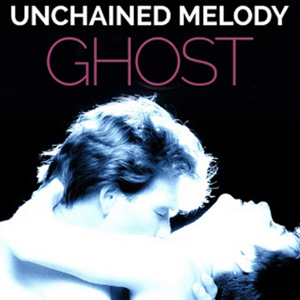 Medley: All those movies, “Top Gun,” “Ghost” and “Dirty Dancing” all at the same time had a huge impact and I really felt “Unchained Melody” really kind of held that movie together. It was a great movie. Bobby Hatfield sang lead on that song and just did a beautiful job. It’s a very simple song, but boy, connected to that movie, it was a hit in ’65, but it became a hit [again in 1990]. The producer of the movie was listening to the radio and they were playing “Unchained Melody,” and he said, “Boy, that’s the song.”
Medley: All those movies, “Top Gun,” “Ghost” and “Dirty Dancing” all at the same time had a huge impact and I really felt “Unchained Melody” really kind of held that movie together. It was a great movie. Bobby Hatfield sang lead on that song and just did a beautiful job. It’s a very simple song, but boy, connected to that movie, it was a hit in ’65, but it became a hit [again in 1990]. The producer of the movie was listening to the radio and they were playing “Unchained Melody,” and he said, “Boy, that’s the song.”
Speaking of soundtracks, what did “Dirty Dancing” do for you?
Medley: I was asked to do that song. I turned it down for about three months because my wife was getting ready to have our baby and I promised her I’d be there. They wanted me to go from California to New York to record it. When they told me Jennifer Warnes wanted to sing it if she could do it with me, I said, “okay,” but we didn’t think the movie was going to do anything. But once again, the movie was about young love and a young little girl going on a vacation, and falling in love with the bad boy (laughs), a dancer at the club. It’s just a sweet movie and I think it’s a story that’s probably been told a few times, but “(I’ve Had) The Time Of My Life” at the end of that movie just made that song a monster. I mean kids would watch the movie, run out to the record store and go buy the record. I think it just affected people, kids, because I think it’s either something they lived through or they wanted to live through. I was just thrilled to death to be involved with that…I mean this in a good way, it is absolutely the song that will not die. I get a call literally once a week from my manager saying, “This commercial wants to do it” or “They want to put it in this movie.” It’s just remarkable. Once again, it just touched a lot of people.
You add this all up and it was no surprise The Righteous Brothers were inducted into the Rock and Roll Hall of Fame. Can you walk us back through that ceremony and what it was like getting inducted by Billy Joel?
Medley: Billy Joel had been a big, big fan for years. He even wrote a song that he wanted us to record. I recorded [“Until The Night”] years later. Going into the Hall of Fame is really the stamp of approval in your career that you made a difference and you touched a lot of people. The real interesting thing was that Elton John and [Aerosmith’s] Steven Tyler were there, and a whole bunch of artists, obviously. It was really interesting to hear how our music and our voices touched all those people, those acts. It was just wonderful and our families were there. It was just a lot of fun and re-affirming that what you did over many, many years really affected people. It was graduation day.
Shortly thereafter, how were you able to deal with the shock and grief of losing Bobby so suddenly and also right before a show?
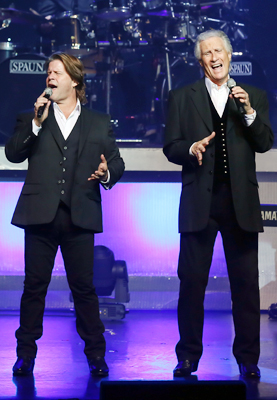 Medley: Shocking to say the least. It was just horrible. His health had been not great, but not that bad. We weren’t expecting that. Yeah, I got a phone call about ten minutes before Bobby and I were supposed to leave to go do the show and our road manager said, “I can’t get into Bobby’s room and it’s locked from the inside.” I said, “Well ,don’t worry, that’s happened before. Just get security. They’ll open up the door.” He called back about ten minutes later and said, “I’ve got some bad news. Bobby’s gone.”
Medley: Shocking to say the least. It was just horrible. His health had been not great, but not that bad. We weren’t expecting that. Yeah, I got a phone call about ten minutes before Bobby and I were supposed to leave to go do the show and our road manager said, “I can’t get into Bobby’s room and it’s locked from the inside.” I said, “Well ,don’t worry, that’s happened before. Just get security. They’ll open up the door.” He called back about ten minutes later and said, “I’ve got some bad news. Bobby’s gone.”
It’s heartbreaking. It’s just heartbreaking. Through all the years of performing with Bobby, you really become brothers and soulmates. We had split up before for a few years of this and that, but when he passed away, knowing that I was never going to be able to sing with him was very, very sad to me. I miss him a lot. I miss him today. I miss him on stage. I miss him off stage. You just have to rise above it and keep going knowing he’s probably in a better place, but it was very tough.
What prompted you to go back out there, initially as a solo artist?
Medley: We broke up in ’68 for about five years. I hate to say “break up.” We kind of just took a break. I did a lot of performing on my own and we went back together in ’74 for a couple of years and then my ex-wife passed away, and I became a single parent, so I took some time off to raise my son. I always did a lot of solo performing, so it wasn’t odd, but I must say the first year after Bobby passed, we kind of did a tribute show to Bobby and it was just way too early. It was emotionally way too early for me and for the audience. That year was real tough and then it started to mellow out a little, but I just always loved to perform. I love to sing. I don’t love to sing. I have to sing. That’s all I know how to do is sing. I’m a one-trick pony. I just needed to perform and even especially more when Bobby passed away. I just felt like I wanted to keep The Righteous Brothers’ music alive and that’s why I teamed up with Bucky Heard in 2016. I’ve had so many people say, “do something or “reform The Righteous Brothers. Keep this music alive.” That was pretty much my driving force.
After you saw Bucky do a Steve Perry tribute, what made you decide he was a match to carry on the tradition when The Righteous Brothers and Journey aren’t necessarily that similar?
Medley: No, they’re not, but Steve Perry’s voice was way up there, first tenor where Bobby is, and I was just amazed that Bucky could get up there and do it. I just felt if you could do Steve Perry, you probably could do Bobby Hatfield (laughs) and that’s what he did. I told Bucky, “First off, I don’t want you to sound like Steve Perry and you don’t have to sound like Bobby. I just want you to sing like Bobby. If you try and sound like Bobby, the audience is probably not gonna like it very much.” Bucky just did a great job. He’s doing a great job.
Tell us about the process of going back into the studio and revisiting some of these songs.
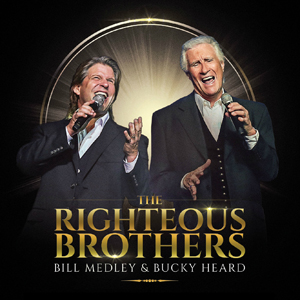 Medley: Yeah, we did a [self-titled] album mainly to sell at the concerts. I don’t even know how you get a hit record today (laughs). It was interesting to do. It was really fun to relive those songs and try and produce them in a way that would still hold up. It was good news and bad news. Some of it was real emotional to do, but mainly a lot of fun and it worked out real good.
Medley: Yeah, we did a [self-titled] album mainly to sell at the concerts. I don’t even know how you get a hit record today (laughs). It was interesting to do. It was really fun to relive those songs and try and produce them in a way that would still hold up. It was good news and bad news. Some of it was real emotional to do, but mainly a lot of fun and it worked out real good.
Is there anything else you’d like to create or achieve that you haven’t done already done?
Medley: I don’t know. I’ve been so blessed. About a week ago, I turned 83. It’s nice to talk about. I feel blessed that I’m out here at this age still doing what I love to do and the audiences are still there. I don’t know that there’s anything else I need to do. I got in this business to perform. That’s still what I’m doing and I’m just loving it. I’m just loving it as much now as I did before.
If you know it, what’s the secret to such extraordinary longevity?
Medley: A lot of artists [say to me], “I want to have hit records. I want to be in show business. What should I do?” I say, “Run like a deer!” The easiest way I can explain it is Bobby and I never went for the real fast lane and we didn’t go into the slow lane. We kind of went down the middle lane and the middle lane just seems to have more longevity, or it certainly did for us. Of course, “Lovin’ Feelin’,” “Unchained Melody,” “Soul And Inspiration,” songs like that really touched a young generation. The audience really is the longevity, and if you can hold up, and still do it, you can just keep going. But it’s really up to the audiences because if they’re not there, there’s no show!
The Righteous Brothers perform at the Genesee Theatre on Thursday, October 5. For additional details, visit RighteousBrothers.com and GeneseeTheatre.com.

